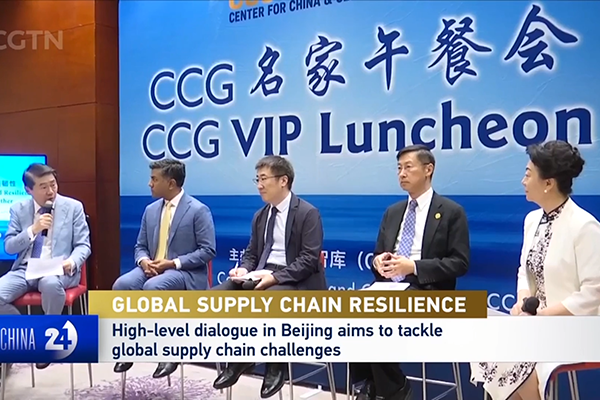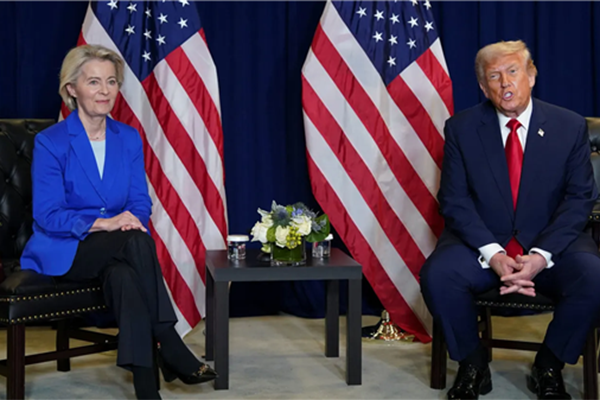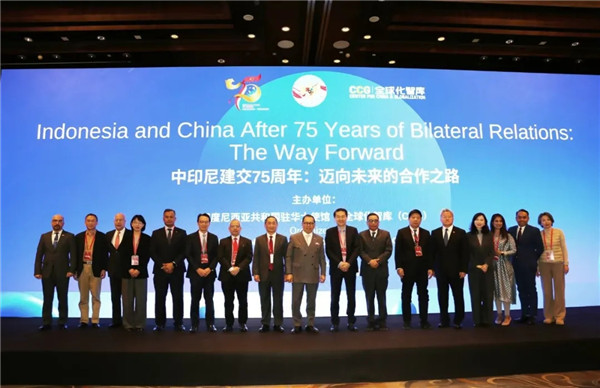[SCMP] Biden must seek a new balance of equals in Asia to avert a US-China partition
January 27 , 2021China’s massive push into Asia is a reaction to the dominant US presence and close US-Japan ties. To prevent a partitioned Asia, Biden should prioritise US-China-Japan relations instead
Rivalry between the United States and China for economic and strategic hegemony in Asia is growing in and beyond the region and within the US itself. Unless the Biden administration shows real statesmanship, the risk of this developing into a US sphere versus a Sino sphere will grow, with damaging or even disastrous consequences.
The enlightenment President Joe Biden is showing on climate change, trade and other issues does not appear to extend yet to improved relations with China. Biden does not wish to appear soft on an “assertive” China and yet this is the very moment for Washington to acknowledge the negative side of its own influence in Asia.
China seems eager for a post-Trump breakthrough in relations with the US. Wang Huiyao, president of the Centre for China and Globalisation(CCG) in Beijing, for example, has called for “more cooperation, less competition” between the two to reduce the “trust deficit that has developed over the past four years”.
“There is a need to build more dialogue mechanisms and enhance bilateral and multilateral cooperation,” Wang said. China and the US should build a global anti-pandemic fund and there is “excellent potential” for China and the US to cooperate to tackle climate change as well as in reforming the rules of world trade, he suggests.
Yet within days of Biden taking over from the egregiously divisive Donald Trump, indications are that he will be constrained in how far he can go to achieve rapprochement with China because of polarised views in the US itself and among US allies.
History will probably record developments in the coming weeks as an opportunity seized, or missed, for acknowledging the true dynamics driving competition between the world’s two largest economies. This will call for an unwonted degree of heart-searching and humility on the part of America’s new leader.
It will require Washington to acknowledge that China’s “aggressive” behaviour in pushing for greater economic and other influence in and beyond Asia is a mirror image of America’s own behaviour in post-war decades.
East Asia’s true potential has been thwarted by the divisive influence of conflicts in which the US has played a decisive role, ranging from the Pacific, Korean and Vietnam wars to recent US-China trade and technology clashes, with Southeast Asia caught in the middle and Japan seeking to play on both sides.
Biden is drawing on the playbook of Barack Obama to restore US relations with Asia but restoring the status quo ante will not alter the fact that Asia’s full economic potential cannot be realised without a fundamental shift in US-China and US-Asia relations.
A region as rich as Asia in the human and natural resources needed to turn these to its productive advantage remains highly fragmented, politically and economically. The cause is Asia’s reliance on external powers to maintain an unstable balance of power.
Chief among these powers is the US, whose roots within Asia ramify deep into the economic and political structure of the region. They help to explain why it remains divided into so many competing and mutually suspicious parts rather than forming a cooperative whole.
China has launched a massive push into Asia but this can be seen as a reaction to the dominant US presence and to Japan’s “lips and teeth” relationship with the US. This relationship seems likely to remain pivotal in the Biden era when, in fact, US-China-Japan relations should take precedence.
If Asia is to attain full economic and political maturity and exploit its true potential, it should not be partitioned between a US sphere and a Sino sphere, or be viewed (as it was in the Trump era) as a theatre of competition between “Asia-Pacific” and “Indo-Pacific”.
Nor should Asia be partitioned into rival trade and investment blocs, such as the Comprehensive and Progressive Agreement for Trans-Pacific Partnership (CPTPP) and the Regional Comprehensive Economic Partnership (RCEP), which have become forums for US-China regional rivalry in Asia.
Biden may choose to take America back into the transpacific trade deal and China “may be open to joining” the body, Wang indicated. That would be a useful start to rationalising the “spaghetti bowl” of trade and economic agreements in Asia and indeed in the world, via World Trade Organization reforms.
Biden’s accession to the US presidency provides a new window of opportunity for reforming this institutional architecture. But the window is only half open and could slam shut again unless the leaders of the US and China – plus Japan – look through it towards a vision of trilateral cooperation.
As Hung Tran, research fellow at the Atlantic Council, has suggested: the election of Biden “is not expected to change the list of substantive issues dividing the United States and China, such as trade, investment, technology, geopolitical competition, national security, and human rights [though] priority among them may change”.
Instead, “Biden’s alliance-building approach may intensify pressure on the rest of the world to take sides.” That would be a sad missed opportunity.
From SCMP , 2021-1-275






